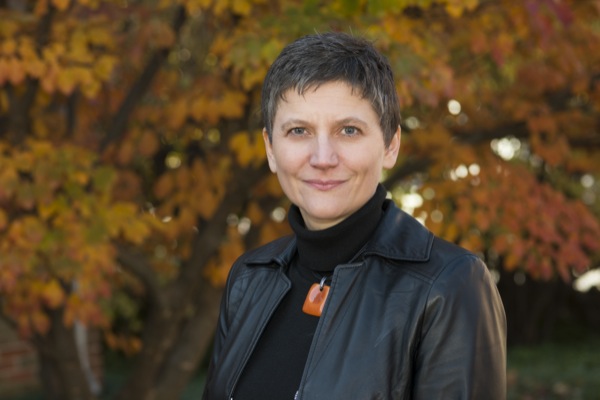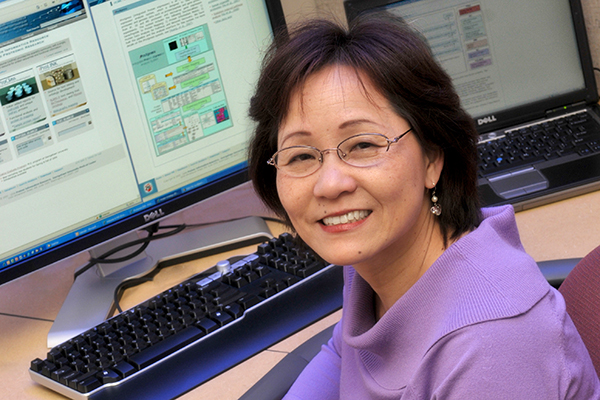


Data science innovation
UD partnering on regional big data innovation hub
3:52 p.m., Nov. 2, 2015--The ability to access, analyze and draw insights from massive amounts of data already drives innovation in areas ranging from medicine to manufacturing, leading to greater efficiency and a higher quality of life.
To accelerate this emerging field, the National Science Foundation (NSF) today announced four awards totaling more than $5 million to establish regional hubs for data science innovation. The new initiative aims to build innovative public-private partnerships that address regional challenges through big data analysis.
Campus Stories
From graduates, faculty
Doctoral hooding
The University of Delaware is partnering on the South Big Data Regional Innovation Hub (South BD Hub), which will be managed jointly by the Georgia Institute of Technology and the University of North Carolina’s Renaissance Computing Institute (RENCI). The South BD Hub will serve 16 Southern states and the District of Columbia.
“Challenges in big data are ubiquitous and can be addressed and overcome only with the engagement of the community,” says Michela Taufer, the David L. and Beverly J.C. Mills Chair of Computer and Information Sciences, who is serving as institutional representative for UD. “The South BD Hub is the ideal platform for researchers and students at UD to reach out and engage the community of developers and users.”
The NSF BD Hubs will engage businesses and research organizations in their respective regions to develop common big data goals that would be impossible for individual members to achieve alone. The hubs will develop community-driven governance structures as well as “spoke projects” based on regional priorities and partnerships.
Initial spoke areas include health care, coastal hazards, industrial big data, materials and manufacturing, and habitat planning.
“This is a very exciting time for our computational and big data scientists at UD to be active participants and contributors to two major national big data networks — the NSF BD Hub and the National Institutes of Health BD2K [Big Data to Knowledge],” says Cathy Wu, the Unidel Edward G. Jefferson Chair of Bioinformatics and Computational Biology and director of the Center for Bioinformatics and Computational Biology.
“As one of the focus areas of the South BD Hub is health care, including precision medicine, these two programs are highly synergistic,” she adds. “Together, they will provide a great national research network to support the big data initiative in the state being spearheaded by the NIH-funded Delaware-CTR ACCEL and Delaware-INBRE programs, and they will help to build ‘dream teams’ of clinicians, biomedical researchers and data scientists who can address the most pressing health care needs in Delaware.”
Charles G. Riordan, UD’s deputy provost for research and scholarship, points to a number of big data efforts at UD, in areas ranging from marine science to transportation to health sciences. Last year, UD launched a major Cybersecurity Initiative, as well as the nation’s first doctoral program in financial services analytics.
“The University of Delaware’s role in establishing this innovation hub is a tremendous opportunity for our faculty and students,” Riordan says. “Their efforts will help advance the collaborative science and problem solving of the future. The ability to mine the meaning out of vast information, whether in genetics or business data, will give the world new strength in tackling some of the grand challenges facing society.”
Initial NSF funding for the South BD Hub will be $1.25 million over three years. NSF has also funded hubs in the Northeast, Midwest and Western U.S., which are managed by universities in those regions.
Article by Diane Kukich
Photos by Evan Krape and Kathy F. Atkinson









